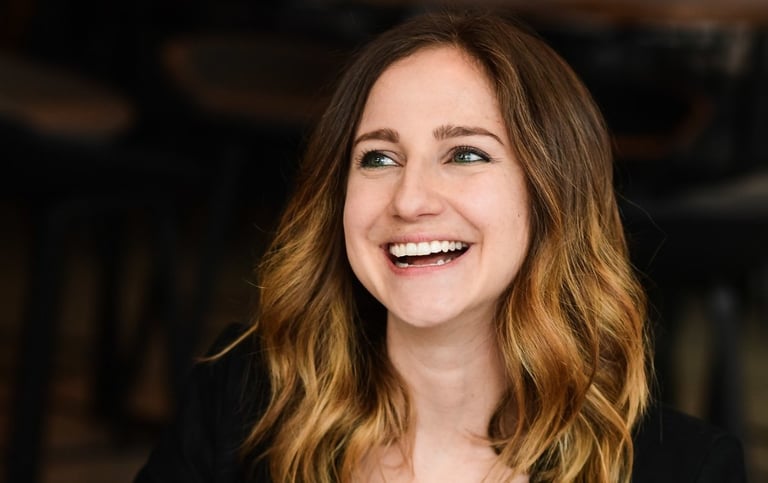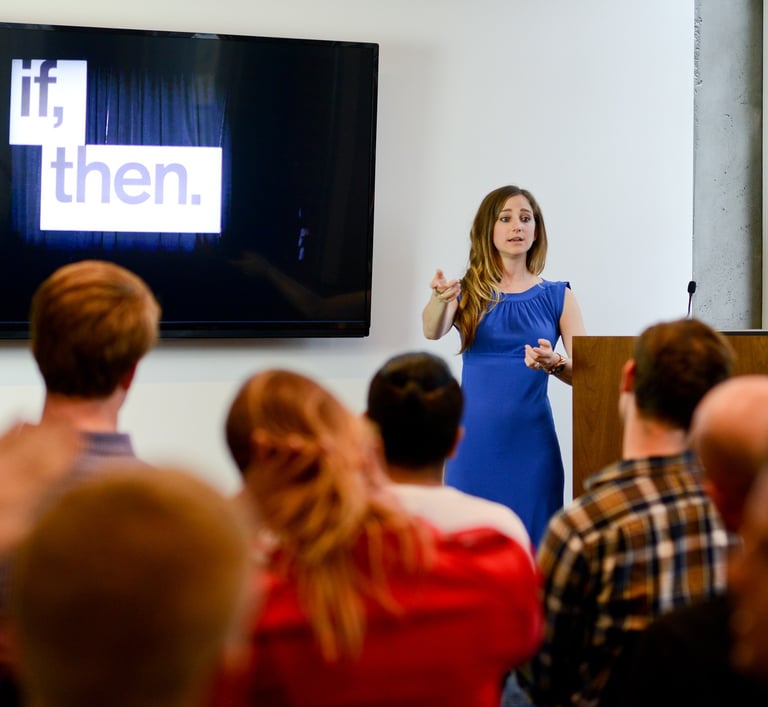Beyond Mental Health: Dr. Emily Anhalt on Practicing Emotional Fitness Every Day
PEOPLE & STORIES


Name: Dr. Emily Anhalt
Title/Profession: Clinical Psychologist, Keynote Speaker, CoFounder of Coa, Best-Selling Author
Based in: United States
Instagram: @dremilyanhalt
Known for: Dr. Emily Anhalt known for pioneering the concept of “emotional fitness”, helping people proactively build resilience, self-awareness, and joy in their everyday lives.
In a world that often treats mental health reactively, one psychologist is championing a new approach: emotional fitness. Moving beyond crisis-driven therapy, emotional fitness is about cultivating skills that help us thrive through life’s ups and downs. In this interview, we explore what it means to “work out your mind like your body,” the underrated power of playfulness, and simple daily habits that can transform emotional well-being.
1. Let’s start with your “why.” What first drew you to psychology - and what keeps you inspired in this work today?
Most therapists don’t become therapists by accident. I grew up in a family that was both psychologically minded and psychologically complex. In high school, I had a psychology teacher who taught me that when you know a lot about psychology, you’ll know a little about everything, because the world is spoken in the language of relationships and psychology is the study of the relationship we have with others and with ourself. What keeps me inspired today is the moment when someone realizes that the hard work they’ve done on themself has made meaningful change in their life. These moments never get old.
2. You’ve coined the concept of “emotional fitness” - can you tell us what that means to you and how it differs from traditional ideas of mental health?
For too long, our culture has treated mental health reactively - something we only pay attention to when there’s a problem. Emotional fitness is a proactive approach. It’s the ongoing practice of building the seven traits that help us thrive through life’s ups and downs: mindfulness, curiosity, self-awareness, resilience, empathy, communication, and playfulness.
3. In your view, what are the emotional skills that people most often underestimate - and why do they matter?
Everyone is different and has their own unique strengths and struggles. But I find that people often underestimate the importance of playfulness. Playfulness keeps us adaptable, collaborative, and creative - essential qualities in relationships, work, and leadership. When we lose those, we lose flexibility, and rigidity is the enemy of growth.
4. You often talk about “working out your mind like your body.” What might a weekly “emotional fitness routine” look like in real life?
It doesn’t have to be complicated. Just like you might do a mix of cardio, strength, and stretching, you can rotate through emotional exercises:
Self-awareness: Practice checking in with yourself regularly and naming what you’re feeling.
Empathy: The next time someone says something you disagree with, take a moment to try to feel what they’re feeling before you respond.
Curiosity: Reach out to someone in your life each week and ask for feedback. You might say, “What is one thing I’m doing well in our relationship, and one thing I could do 10% better”?
Resilience: Reflect on a past challenge and what helped you through it. Make a list of resources you could turn to during a tough time.
Playfulness: Start your next meeting with an ice-breaker question or game.
Small, consistent reps make a huge difference.
5. Burnout, anxiety, and isolation are rising, especially in our hyper-connected world. Why do you think so many people feel disconnected or emotionally depleted - and what can help?
We’re more connected than ever digitally but less connected emotionally. Our nervous systems weren’t designed for constant input and comparison. We’ve traded depth for breadth. What helps is reclaiming slowness and intention - spending real time with people, putting our phones down, and reconnecting with our bodies and environments. Emotional depletion often signals disconnection from self. The antidote is presence.
6. What advice would you give to someone who wants to begin therapy but feels overwhelmed by the process of finding the right support?
I empathize - it’s a frustrating system to navigate. I recommend going by referrals. If someone in your life likes their therapist, ask if their therapist can recommend a colleague for you. Finding the right therapist is a little like dating - you’re not looking for perfection, you’re looking for fit. And if the idea of therapy feels too big, start with something adjacent: a book, a podcast, or daily journaling.
7. What inspires you lately - whether it’s a book, a conversation, a place, or a practice?
Lately, I’ve been inspired by people’s willingness to talk about the hard stuff - to bring emotional honesty into workplaces, relationships, and public spaces. On a personal level, time in nature always resets me. There’s something about being somewhere bigger than my thoughts that puts everything in perspective.
8. What’s one emotionally fit habit you swear by, even on your busiest days?
I never skip my morning check-in. Before emails, before news, before anything else, I take a few minutes to notice what I’m feeling and what I need. It sounds simple, but it’s like setting your emotional GPS for the day.
9. What’s your take on the mental health content explosion on social media?
I think it’s both beautiful and messy. On one hand, it’s incredible that mental health is being normalized and made accessible. On the other, bite-sized content can oversimplify complex concepts. My hope is that social media can be a doorway (not a destination) that inspires people to go deeper.
10. When you think about the future of emotional health, what excites you - and what worries you?
I’m excited that emotional skills are finally being seen as leadership skills. Companies, schools, and communities are realizing that emotional fitness isn’t a “soft skill”, it’s a necessary and important investment. What worries me is the speed we’re moving. Real emotional growth takes time, reflection, and discomfort, all things our culture tends to avoid. My mission is to make that process not just approachable, but appealing.








